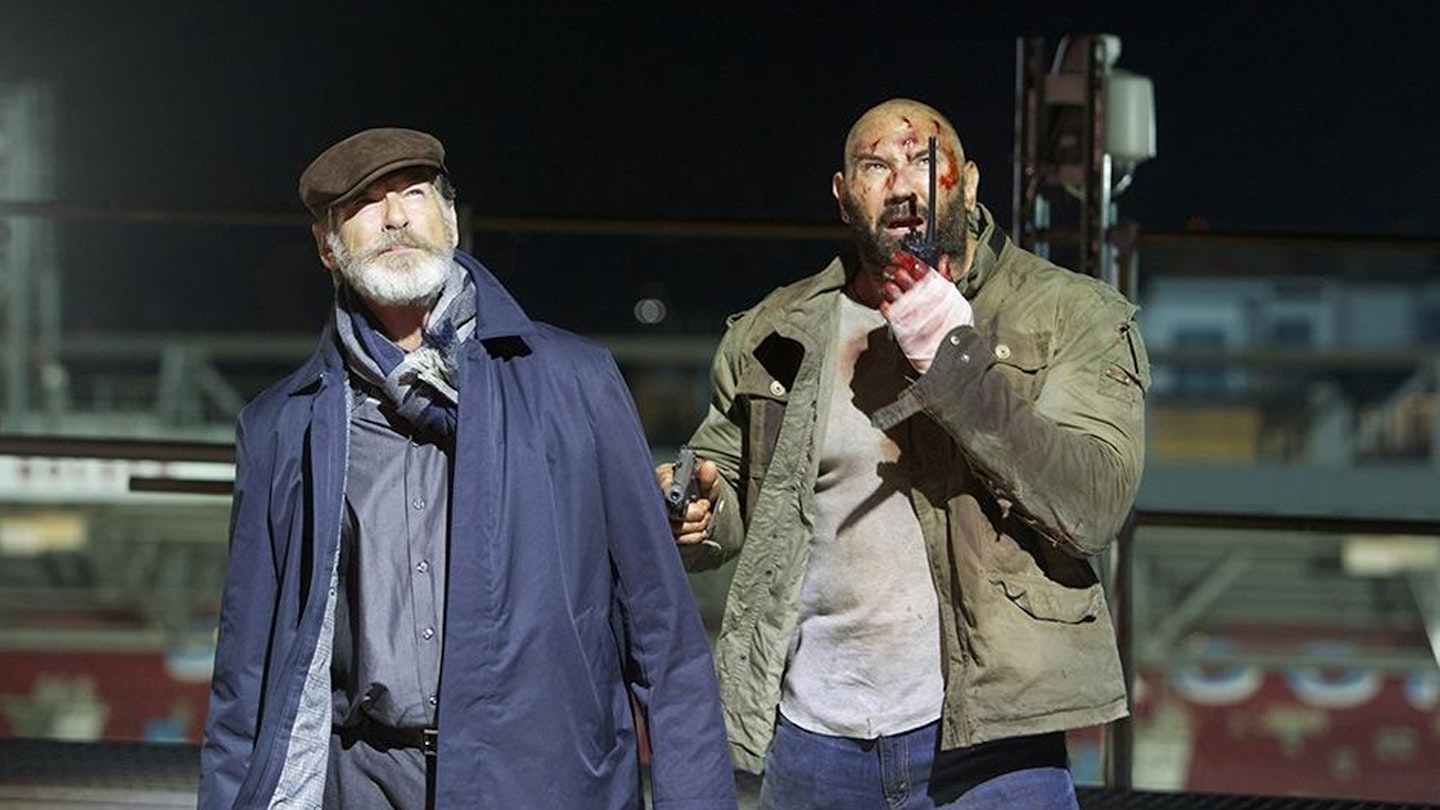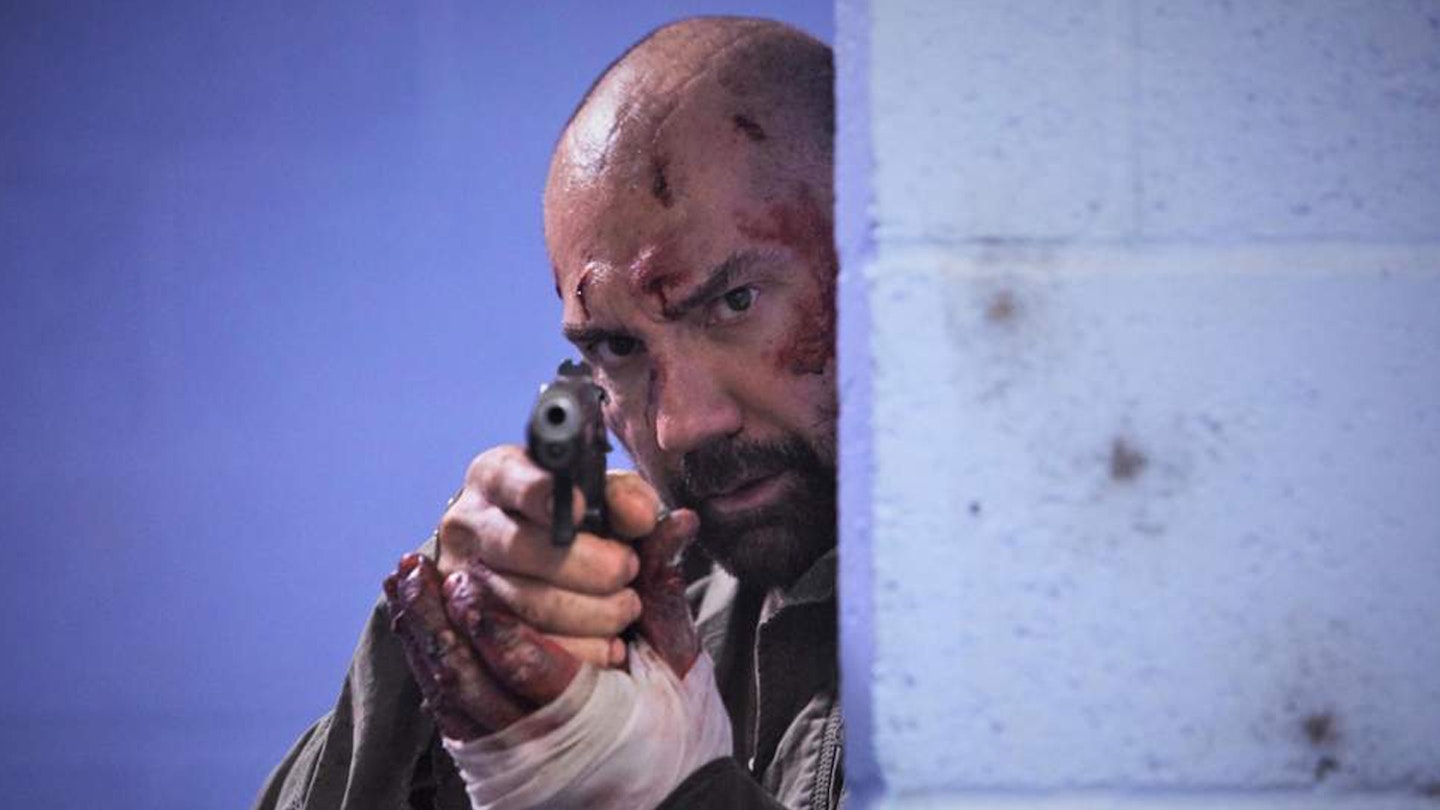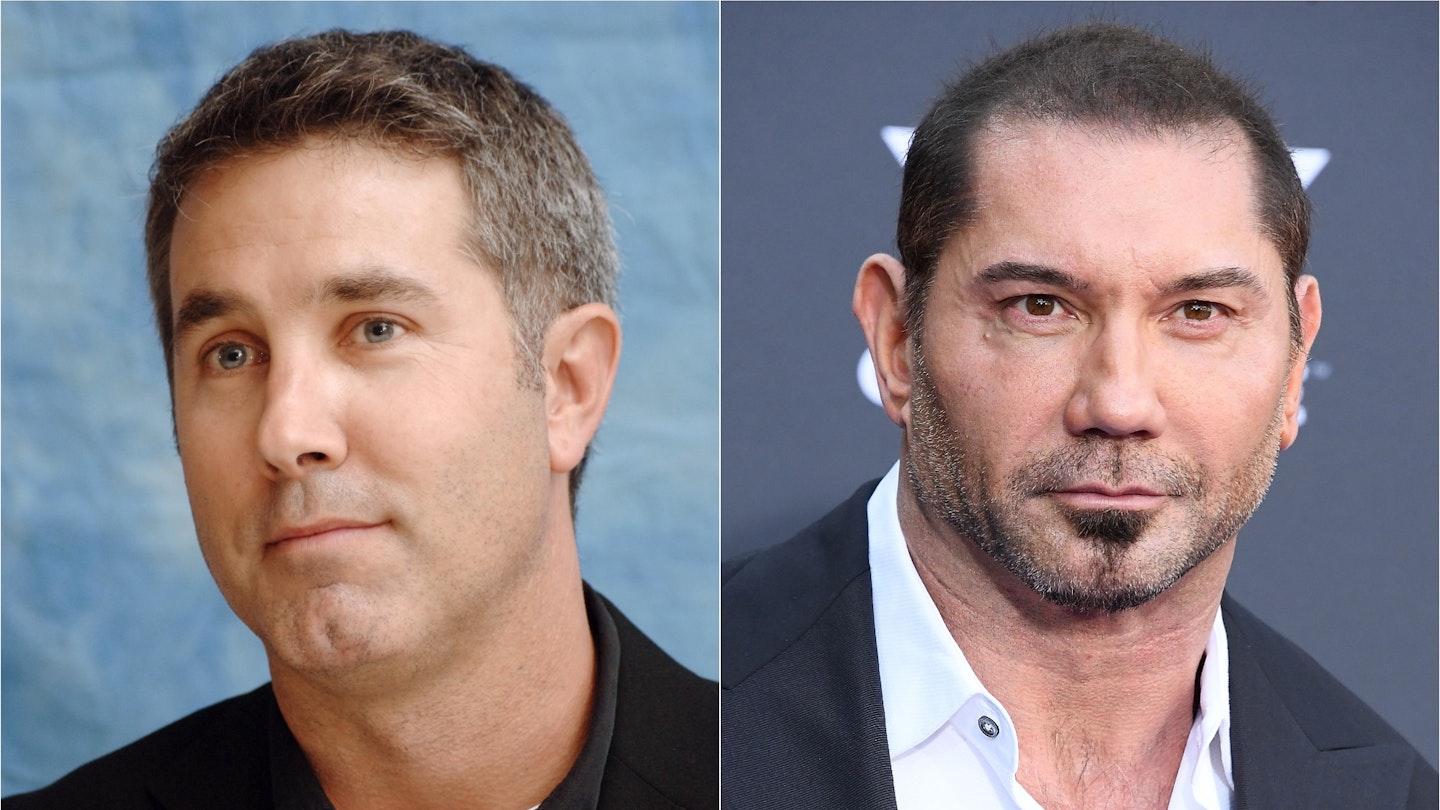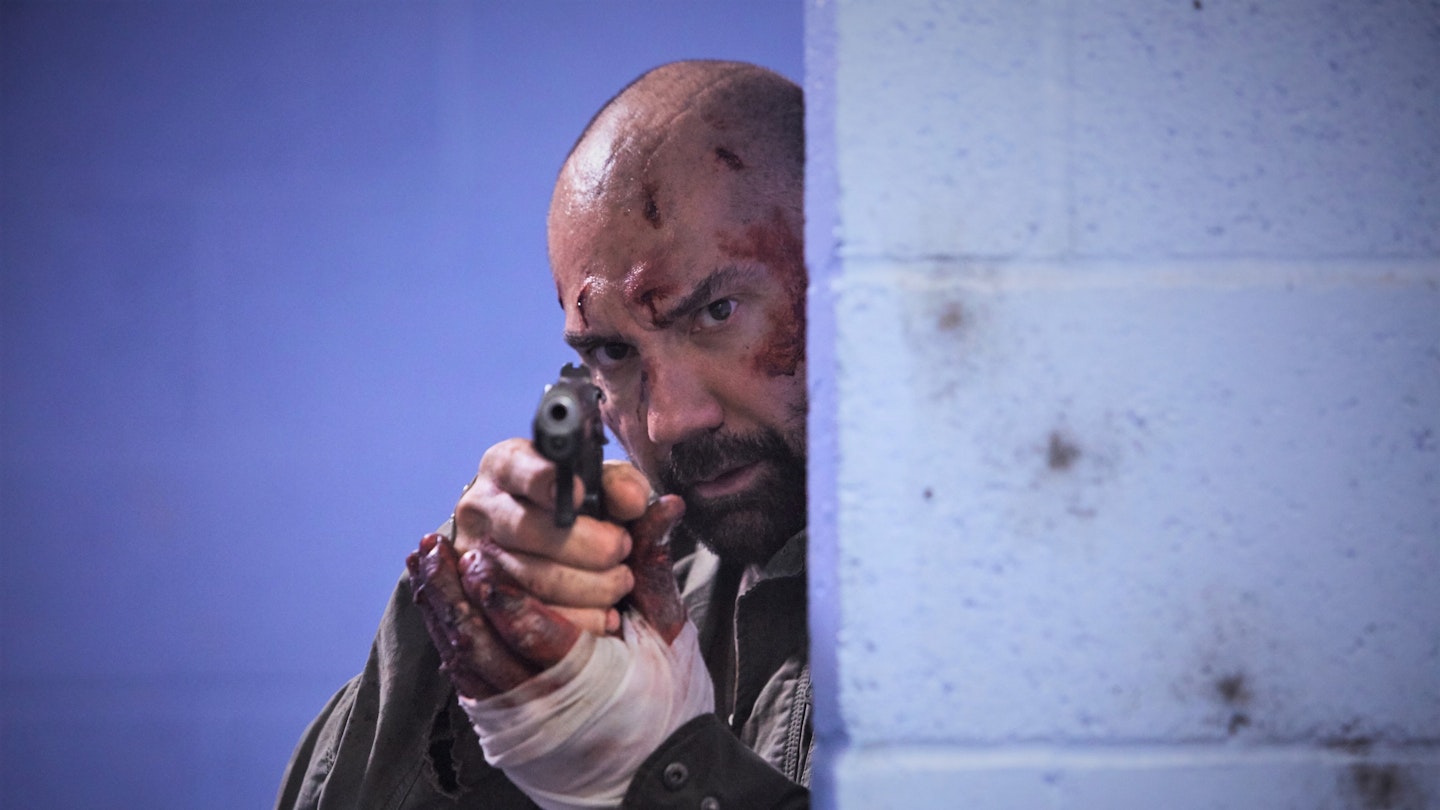The idea to set a Die Hard-style action movie in West Ham United’s Boleyn Ground was an inspired one — with the club relocating to the Olympic Stadium, it was set to be demolished anyway. This gave the filmmakers free rein to do what they liked, without worrying about irate groundskeepers glaring from the sidelines. Want to ride a motorbike along the concourses? Go for it. Stage a brawl in the stadium kitchens? No problem. Blow up a section of the stands? Knock yourself out.

The set-up sticks closely to John McTiernan’s template: terrorists infiltrate the building, Knox (Bautista) goes on a one-man mission to stop them, action set-pieces ensue. But it’s not just in the elevator-pitch plot that the film mirrors Die Hard. He also has someone close to him who’s in peril — McClane had his wife, Knox has his niece (Lara Peake), who he took to the match but who ditched him to hang out with her boyfriend. And one of his early terrorist kills gives him a nemesis amongst the group, although the relationship he brings to an abrupt halt here is between lovers rather than brothers.
The film also requires you to take huge leaps of logic. How, for example, does no-one notice any of the gun fights? Why does no-one bat an eyelid at the military helicopter hovering over the Bobby Moore Stand? And, perhaps most incongruous of all — how did West Ham get to a European semi-final?
But despite all this, there are moments of inspiration in the film (one involving motorbikes, one involving Tony Cottee). Sadly, they are all too rare. It’s a frustratingly familiar story — the same could be said about The Meg and multiple other films this year. You want the movie to double (triple!) down on entertainingly ludicrous action, but it plays it too safe. And, in borrowing so much from the Die Hard template, there are frequent reminders of the original, better film.




